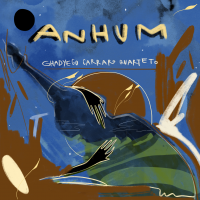Home » Member Page
J. Plunky Branch
Saxophonist, producer, leader of renown Afro-funk jazz group, Plunky & Oneness (of Juju)
 About Me
About Me
J. Plunky Branch: Saxophonist | Composer | Producer | Cultural Ambassador J. Plunky Branch is a celebrated saxophonist, composer, and producer whose career spans over five decades. As the founder and president of N.A.M.E. Brand Records, his independent label, Plunky has released an impressive 30 albums that blend funk, jazz, Afrobeat, soul, reggae, and hip-hop. Leading his dynamic ensemble, Plunky & Oneness (of juju), he has shared stages with icons such as Patti LaBelle, Ray Charles, Earth, Wind & Fire, Yellowjackets, Frankie Beverly & Maze, LL Cool J, and Chuck Brown. Plunky’s international appeal was solidified in the 1980s with the London soul chart hit “Every Way But Loose,” and continued with his 2007 single “Drop.” His latest project, Plunky & Oneness of Juju – Made Through Ritual, a cosmic jazz album, was released this year by Strut Records (London). He recently returned from Ghana, where he recorded a highlife music album with the Seekaman All Stars. As a cultural ambassador, Plunky has toured extensively across Europe (including the UK, France, Germany, Austria, and Switzerland), and twice in Ghana—first on behalf of the Ghana National Commission on Children, and later as a U.S. Information Agency cultural specialist. His global work encompasses musical and film research in Cuba and Brazil, including his acclaimed documentary, ”Under the Radar – A Survey of Afro-Cuban Music.” Plunky & Oneness of Juju have performed at esteemed events and venues including the New Orleans World’s Fair, the National Black Arts Festival (Atlanta), the Capital Jazz Festival (Maryland), the Kennedy Center (Washington, D.C.), Lincoln Center (New York), and the Virginia Museum of Fine Arts. With over 25 years of support from the Virginia Commission for the Arts, Plunky has toured widely throughout Virginia and beyond. In recognition of his impact, he was honored with the “50 for 50 Award” by the VCA in 2018 and was named a “Strong Men & Women in Virginia History” honoree by the Library of Virginia in 2015. In addition to his performance career, Plunky is a dedicated educator and arts advocate. He has taught at Virginia Union University and Virginia Commonwealth University, and has served on the Governor’s Task Force for the Promotion of the Arts in Virginia. A two-time NEA Jazz Fellowship recipient, Plunky continues to inspire audiences through performance, education, and cultural exchange. A recent reviewer called Plunky “the George Clinton of jazz,” and years ago, an African critic called him “one of the greatest living saxophonists”—a testament to the passion, innovation, and authenticity he brings to every stage. For more information, contact: John Jones Jr. P.O. Box 7052, Richmond, VA 23221











